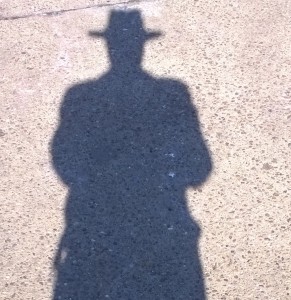Since I am writing a series of historical novels on the Vietnam Conflict, I was drawn to watch the Vietnam War Documentary produced by Ken Burns for PBS. The ten-episode series was well researched, and Burns presented all sides of the Conflict, including the North Vietnamese prospective. The stories of individuals involved gave the narrative a personal insight often missing from such broadcasts. I was concerned about how the producer would portray US troops—but I shouldn’t have been. The depiction was excellent—except, perhaps, too much focus on the negatives created by US troops rather than those created by military and political leaders’ flawed military strategy.
The documentary started in the mid-1800s, which provided excellent insight into the mental make-up of the Indochinese people. This essential understanding of the Vietnamese was something US decision-makers did not bother to acquire.
Indecisiveness characterized President Kennedy’s administration, which focused on South Vietnamese President Diem—who was already in trouble with the majority Buddhist population in his country. All the while, the North Vietnamese, under the lead of their second-in-command, Le Duan, the General Secretary of the Communist Party of Vietnam, focused on moving supplies into South Vietnam. He was instrumental in the continuous growth of the conflict, no matter the action of the United States. While he was pushing the war buttons, Ho Chi Minh became a figurehead assuming the role of “Uncle Ho,” dressing like the people and walking amongst them. His personality was widely embraced by the population, while Diem’s actions isolated him from his people. 
Shortly after President Johnson was elected in 1964, he committed troops to South Vietnam—and, every time Westmoreland asked for more, Johnson granted his requests. Camps set up throughout South Vietnam became easy targets for the North Vietnamese and Viet Cong’s mortars. The documentary clearly showed that Westmoreland defined battle victories by body count. Worse still, US troops were sacrificed to capture ground; soon thereafter, the ground fought and died for fell right back to the enemy. US soldiers were not allowed to pursue the enemy into Cambodia or Laos.
Meanwhile, the North Vietnamese leadership committed every citizen to their effort, body count be damned. They correctly believed their goal of staying engaged at all costs would eventually wear down the will of the United States, which had little to fight for other than stopping the spread of communism. The North Vietnamese and the Viet Cong worked diligently to keep the Ho Chi Minh trail available to move supplies or men into the South. They forced women and children to work at night to repair the bomb damage to keep the road open.
There were two comments that made me proud of our men who served. Colonel Moore stated the US troops fought gallantly at the battle of Ia Drang, and Neil Sheehan commented that soldiers in Vietnam fought as hard as the men who served in World War II. This was especially pertinent since the US military had been trained to fight the Soviets in conventional war, not the guerrilla warfare of the Vietnamese and Viet Cong.
Burn’s coverage of the Tet Offensive was spot on. Clearly, this was the moment of the Vietnam Conflict. US troops inflicted enough casualties on the Viet Cong that, as Westmoreland predicted, casualties out-numbered replacements. While the attack was anticipated, Westmoreland guessed wrong about where it would take place. Instead of only attacking the northern portion of South Vietnam, the North Vietnamese and Viet Cong also attacked every major population center in South Vietnam via the Ho Chi Minh trail. The battles were intense, but in the end, the US defeated the North Vietnamese and virtually wiped out the Viet Cong. However, these were the first battles televised live, and watching the realities of war play out in their living rooms turned a public opinion against the war effort.
By the time President Johnson was up for re-election in 1968, he realized the country had turned against him. The anti-war movement would not allow him the Democratic votes to be re-elected. Instead, the people voted for Richard Nixon, who had promised to end the war with a winning strategy. Nixon increased bombing so sorties were flown day and night. He negotiated with the North Vietnamese to basically allow US troops to leave, which was easy. The North knew as soon as the US left, they could crush the South, whose political leadership had been such a game of musical chairs it was embarrassing. The corruption of the leaders of the South was even more embarrassing.
There were two important items left out of the documentary—the role of the CIA, and the role of illegal drugs. However, these are covered extensively in my historical novels. I don’t know why Burns and PBS left them out. They did interview one CIA agent, who represented one of the two factions of the CIA.
All in all, PBS’s Vietnam War was well done. What did you think of Burn’s documentary? Do you think he got it right? Why or why not?
